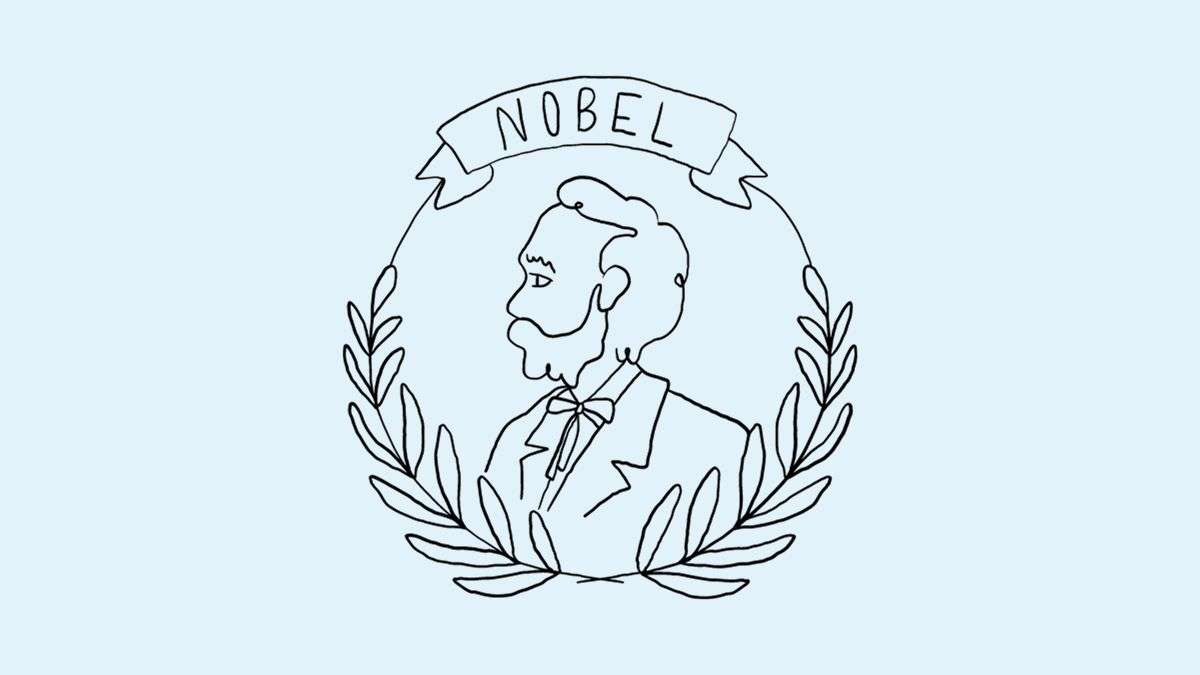Table of Contents
- Introduction
- The Visionary Behind the History of the Nobel Prize
- Evolution of Prize Categories
- Controversies and Criticisms
- Nobel Prize Laureates and Their Impact
- Conclusion
Introduction
The write-up explores the history of the Nobel Prize. The Nobel Prize holds a unique place in recognizing humanity’s most outstanding achievements. Since 1901, these prestigious awards have highlighted breakthrough discoveries and life’s work that moves society forward. A Nobel Prize represents career achievement for scientists, academics, activists, and creatives in many fields.
Alfred Nobel created these prizes to award those who confer the “greatest benefit to humankind” in physics, chemistry, medicine, literature, and peace (later expanded to include economic sciences). The Nobel Prize calls attention to advances that dramatically push the boundaries of knowledge and progress. By honoring trailblazing work, often in the face of great skepticism, the Nobel Prize underscores scientific breakthroughs, creative vision, and moral courage that uplift humanity.
In addition to international recognition, Nobel Prize recipients also gain a platform to continue spreading their message and life’s work. The fame and validation that come with the prize allow laureates to attract funding, publish books, give lectures, and mentor future generations. Thanks to over a century of awarding outstanding human achievement, the Nobel Prize now bears enormous weight in validating work and attracting global interest. Receiving this highest of honors cements one’s lasting legacy.
As one of the world’s most eminent awards, the fascinating history of the Nobel Prize should never be ignored. Alfred Nobel’s vision for uplifting humanity has led to many laureates and achievements honored over the decades.
However, the prize has also weathered its share of controversies and calls for reform. Understanding this complex history provides insight into how the Nobel Prize aims to push forward human progress amidst an ever-changing world. The stories behind the most impactful prize on Earth reveal inspiring triumphs of science and character.
The Visionary Behind the History of the Nobel Prize
Alfred Nobel was a Swedish scientist, inventor, and industrialist who made a vast fortune through the commercial success of his inventions, including dynamite. However, he was troubled later in life by the increasingly lethal uses to which his inventions were being put. This led him to use his wealth to create the Nobel Prize, recognizing significant achievements that benefit humanity.
From Inventor to Philanthropist
As an inventor, Alfred Nobel held over 300 patents. His most famous invention was dynamite in 1867, which proved highly lucrative. However, he was shocked to read a premature obituary of himself that condemned him as a “merchant of death” for inventing such a destructive force. This experience caused him to reconsider his legacy.
In his will, Nobel directed that most of his wealth be used to establish annual prizes for those who confer the “greatest benefit to mankind” in physics, chemistry, medicine, literature, and peace. This reflected his desire to leave behind a more positive legacy.
Lasting Global Impact
The Nobel Prize has become one of the world’s most prestigious awards. As of 2022, the Nobel Prizes and the Prize in Economic Sciences have been awarded 607 times. Nobel Laureates have included renowned figures like Albert Einstein, Martin Luther King Jr., Marie Curie, and Malala Yousafzai.
The global recognition of the Nobel Prize ensures that the work and achievements of the laureates receive greater attention. This helps spread knowledge and spur further development across scientific and cultural fields.
Over a century after Nobel’s death, the prizes he established continue to represent the pinnacle of human achievement worldwide.
Evolution of Prize Categories
The Nobel Prize categories have evolved significantly since the first prizes were awarded in 1901. Originally, there were five prize categories – Physics, Chemistry, Physiology or Medicine, Literature, and Peace. Alfred Nobel himself chose these categories in his will to establish the prizes.
The first significant change came in 1968 with the addition of the Nobel Memorial Prize in Economic Sciences. This reflected economics’s growing importance and sophistication as a field of study. The award was funded separately by Sweden’s central bank but is administered and awarded alongside the other Nobel Prizes.
Since then, there have been discussions around expanding into other fields like mathematics, but no new prizes have been added. The Nobel Foundation is careful and selective about introducing new awards to preserve the prestige and legacy of the existing prizes.
Motivations Behind Category Changes
There have been various motivations behind adjustments to the Nobel Prize categories over the years:
- Recognizing critical new fields of research like economics.
- Responding to important global issues and challenges, like the Peace Prize’s focus on human rights and climate change.
- Accommodating interdisciplinary work between traditional categories.
- Commemorating anniversaries of Nobel’s death and the first awards.
These changes showcase the Nobel Prize’s commitment to staying relevant, even as the frontiers of human knowledge continue expanding in new directions.
Ongoing Discussions Around Future Categories
There are recurring conversations around potentially adding new Nobel Prizes for fields like mathematics, computer science, ecology, etc. Supporters argue these disciplines have a major global impact worthy of Nobel recognition. However, others want to retain the prestige of the current prizes and are concerned about diluting the brand.
The Nobel Foundation takes a measured approach. However, the evolving state of research does suggest we may see new categories introduced over time as human knowledge continues advancing into new domains.
Controversies and Criticisms
Throughout the history of the Nobel Prize, the award has faced its fair share of controversies and criticisms. Some of the most notable controversies have centered around the Nobel Peace Prize, where the committee has sometimes made controversial or contentious choices for the laureate.
Peace Prize Controversies
In 1973, the Nobel Peace Prize was awarded to Henry Kissinger and Le Duc Tho for negotiating a ceasefire to end the Vietnam War. However, the selection of Kissinger was highly controversial, given his involvement in the secret bombing of Cambodia during the war. Many criticized the choice, and two Nobel Committee members even resigned in protest.
Another controversial Peace Prize choice was the awarding the 2009 prize to Barack Obama. Obama was selected after less than a year in office before he had made any significant peace-related achievements. Some saw this as a politically motivated choice rather than a merit-based one.
Responses to Criticism
Over time, the Nobel Foundation has aimed to be more transparent and responsive to criticism about its selection process. It has clarified the criteria used to evaluate candidates and has made efforts to diversify the demographics of the selection committees.
For example, in response to criticism about geographical bias, the Nobel Foundation has continued to expand its network of qualified nominators to include more representation from non-European countries.
The Nobel Prize also continues evolving by adding new categories like the Nobel Memorial Prize in Economic Sciences, which was added in 1968. This demonstrates a willingness to adapt to new fields and developments in research.
Nobel Prize Laureates and Their Impact
Throughout the history of the Nobel Prize, many groundbreaking scientists, authors, activists, and leaders have been recognized.
Their work has had tremendous and lasting impacts on medicine, literature, economics, and peacemaking. By spotlighting just a few significant laureates, we can glimpse the diversity of backgrounds and accomplishments that have been honored.
Pioneers in Medicine
In physiology or medicine, laureates like Alexander Fleming, who discovered penicillin, and James Watson and Francis Crick, who revealed DNA’s molecular structure, made breakthroughs that transformed healthcare. Recent winners like Tu Youyou, who helped develop a malaria treatment using traditional Chinese medicine, and Tasuku Honjo and James Allison for cancer immunotherapy, show medical innovation’s global and interdisciplinary reach.
Influential Literature and Economics
The Nobel Prize in Literature has recognized towering figures like Toni Morrison, Alice Munro, and Gabriel García Márquez, whose fiction explored essential human experiences. Like pioneering theorists Milton Friedman, Paul Krugman, and Elinor Ostrom, Laureates in economics profoundly shaped our understanding of macroeconomics, trade, and governance.
Icons of Peace
Extraordinary Nobel Peace Prize winners like Martin Luther King Jr., Mother Teresa, and Nelson Mandela demonstrated an unflinching commitment to nonviolence, human dignity, and racial justice. Recent laureates like Malala Yousafzai and Denis Mukwege have continued this legacy, drawing attention to human rights and a spirit of unity across divides.
While this scratches the surface, it’s clear Nobel Prize recipients have pushed boundaries in science and society. They inspire with visionary thinking, compassion, and the notion that progress happens when we lift our shared humanity.
Conclusion
We have explored the fascinating history of the Nobel Prize. In conclusion, the Nobel Prize is a testament to human ingenuity, perseverance, and the relentless pursuit of knowledge for the greater good. From Alfred Nobel’s visionary philanthropy to the latest laureates pushing the frontiers of science, literature, and peace, the impact of these prizes is immeasurable.

The Nobel Prizes have recognized and inspired excellence across generations and geographies, serving as beacons of hope and progress. Despite facing controversies and calls for reform, the Nobel Foundation has shown adaptability, ensuring that the prizes remain relevant and reflect our evolving understanding of what constitutes significant contributions to humanity.
The laureates, each with their unique discovery and advocacy story, exemplify human endeavor’s transformative power. They have opened new pathways in medicine, expanded our cultural horizons through literature, advanced economic thought, and championed peace and human rights.
As we look to the future, the legacy of the Nobel Prize continues to encourage us to think bigger, reach further, and act bravely in our quest to uplift and advance the human condition. This enduring spirit of the Nobel Prize will continue to ignite the minds and hearts of people worldwide, honoring those who have dedicated themselves to the “greatest benefit to humankind.”
